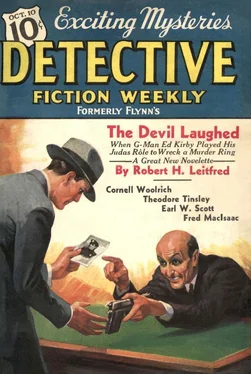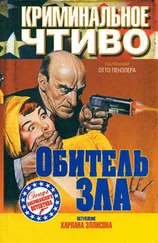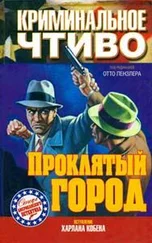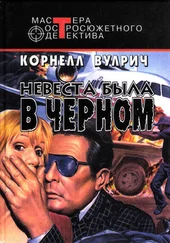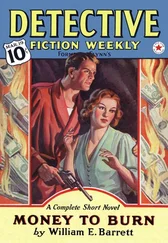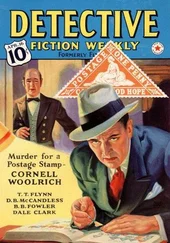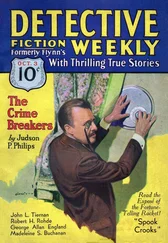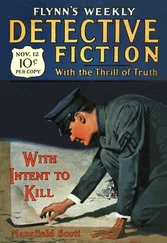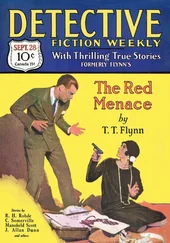Корнелл Вулрич - Detective Fiction Weekly. Vol. 50, No. 5, October 10, 1936
Здесь есть возможность читать онлайн «Корнелл Вулрич - Detective Fiction Weekly. Vol. 50, No. 5, October 10, 1936» весь текст электронной книги совершенно бесплатно (целиком полную версию без сокращений). В некоторых случаях можно слушать аудио, скачать через торрент в формате fb2 и присутствует краткое содержание. Город: New York, Год выпуска: 1936, Издательство: The Red Star News Company, Жанр: Детектив, на английском языке. Описание произведения, (предисловие) а так же отзывы посетителей доступны на портале библиотеки ЛибКат.
- Название:Detective Fiction Weekly. Vol. 50, No. 5, October 10, 1936
- Автор:
- Издательство:The Red Star News Company
- Жанр:
- Год:1936
- Город:New York
- ISBN:нет данных
- Рейтинг книги:4 / 5. Голосов: 1
-
Избранное:Добавить в избранное
- Отзывы:
-
Ваша оценка:
- 80
- 1
- 2
- 3
- 4
- 5
Detective Fiction Weekly. Vol. 50, No. 5, October 10, 1936: краткое содержание, описание и аннотация
Предлагаем к чтению аннотацию, описание, краткое содержание или предисловие (зависит от того, что написал сам автор книги «Detective Fiction Weekly. Vol. 50, No. 5, October 10, 1936»). Если вы не нашли необходимую информацию о книге — напишите в комментариях, мы постараемся отыскать её.
Detective Fiction Weekly. Vol. 50, No. 5, October 10, 1936 — читать онлайн бесплатно полную книгу (весь текст) целиком
Ниже представлен текст книги, разбитый по страницам. Система сохранения места последней прочитанной страницы, позволяет с удобством читать онлайн бесплатно книгу «Detective Fiction Weekly. Vol. 50, No. 5, October 10, 1936», без необходимости каждый раз заново искать на чём Вы остановились. Поставьте закладку, и сможете в любой момент перейти на страницу, на которой закончили чтение.
Интервал:
Закладка:
It was Egan’s function in life to succor the poor, the helpless, the misunderstood, There was no man, woman or child in the state too humble or too obscure to obtain Frank Egan’s services. He had saved countless victims of circumstance from unjust prison sentences, and to others, convicts on parole, he had given, fresh starts in life. His own chauffeur had served a prison term for burglary.
Back in his office Dullea summoned one of his crack detectives. “ I want you to go with me to the home of the late Mrs. Jessie Hughes,” he told him.
“What’s up, Chief?”
“Oh, nothing much. Just that Mrs. Hughes was not an ordinary hit-and-run victim. In fact, she was murdered!”
The home of Mrs. Hughes was a pleasant, little white plaster house with a red roof. Dullea tried the front door. It was bolted. So was the back door and, all the windows. The garage, which was attached to the house, was likewise locked.
“Looks like you were right, Chief,” the detective said, “the old lady must have been scared of something or why should she have kept everything tighter than a clam? Shall I bust it open?”
Dullea nodded. A few minutes later they stood in a wide-beamed, cool living-room. All around them were cages filled with yellow canaries. The singing and rustling of tiny wings created a strange atmosphere. The two men pressed forward into the kitchen. On a white enamel table they, saw a cluster of vegetables peeled, washed and ready to be cooked. Next to them stood a sauce-pan half-filled with water.
“Guess she was interrupted just as she was preparing supper,” the detective ventured.
They continued to wander about the house. Presently they came to a small, white door which obviously led to the attached garage. Like all the other doors in the house it was locked and bolted on the inside. With a bunch of keys they found in a red purse they opened it and descended into the garage. The garage door, they found, was equipped with an automatic lock which locked when the door was slammed shut.
One of the keys from the red purse fitted this door. This would have been the only way of entering the house, but since the keys were found in the house and not on Mrs. Hughes’s body it appeared that she had been taken out forcibly. What was more surprising, there was no car in the garage.
“What’s the answer to that?” Dullea mused aloud. “A garage and no car.”
“You heard what the lady next door said. Mrs. Hughes never did own a car. It just happened that the house she bought had a garage attached.”
“Sure. Then I wonder what these tire-marks mean.” He indicated a number of distinct patterns on the cement floor.
The detective consulted a small, black notebook. “That would be the blue Lincoln sedan driven by two men which the neighbors saw leave this house around 9:30 the night of Mrs. Hughes’s death. I’m telling you. Chief—”
But Dullea was no longer listening. He was on one knee, passing his hand over a circular rubbed stain on the floor. Bending closer he picked up something between his fingers.
“What is it, Chief?”
“Look.” He held up a number of white hairs. The roots were bloody.
“That’s it! The old lady was done in just like you said.”
“Yes, and I think I know how. Those two men drove the Lincoln sedan into this garage and Mrs. Hughes came around to meet them from the front. They knocked her down, threw her in the car, dumped the body on the road and then ran over it to make it look like a hit-and-run case. You remember she was wearing a sweater over an ordinary house-dress. My guess is that they slipped the sweater over her to make it seem as though she had been taking a walk when she was struck. Furthermore, I’ll bet that bruise on her jaw was from a man’s fist and this cleaned spot here was blood!”
“It fits, Chief. What’s the next move?”
“To find that blue sedan.”
III
The body of Mrs. Jessie Hughes had been found on the evening of April 29, 1932. On the following Monday a blue Lincoln sedan, belonging to Lieutenant Oscar Postel, of the city fire department, was discovered in a public garage. The tire-tread matched those on the floor of Mrs. Hughes’s garage.
The report of this discovery was brought to Dullea by one of the scores of detectives now working on the case.
“The garage man admitted that Postel’s car had been borrowed on the night of the murder,” he said, “and returned a few hours later. It was borrowed by a guy called Verne Doran.”
“ Verne Doran!” Dullea braced himself on the arms of his chair. “Do you know who Verne Doran is?”
“No, I don’t know.”
“Wait.” He thumbed through some files on his desk. “Here it is: Verne Doran, paroled convict, up for burglary with weapons. Previously tried and acquitted of murder. Known to be an associate of Albert Tinnin, also an ex-convict, once suspected of murder. Here are pictures of them both.”
Dullea tapped angrily on a pair of rogues’ gallery portraits. Tinnin had a long, ape-like face and close-set eyes. Doran had high cheek bones and wore a pencil-thin mustache.
“I want you to nab those guys so quick they won’t know what struck ’em. I don’t mind telling you that Doran is Frank Egan’s chauffeur and Tinnin is one of the crooks Egan has tried to help go straight!”
The detective whistled shortly and dashed from the room.
But it wasn’t as easy as all that. The city was scoured, but neither Doran nor Tinning could be found. When the newspapers broke the story that a pair of ex-convicts, protegés of the public champion, Frank Egan, were toeing sought in connection with the death of Mrs. Hughes, the citizenry preferred to put a creditable interpretation on Egan’s position. His whole official work had consisted in protecting the legal rights of accused men who were without funds, in helping deserving prisoners to find jobs so that they could leave the prison walls with a prospect of making good. Tinnin’s parole had been recent. It had been granted at Egan’s request. What was suspicious about that?
On the evening of May 4, an amazing thing occurred. Dullea, eating a sandwich in headquarters, was called to the telephone. He recognized the voice at once. It was Egan.
“Listen,” he whispered hoarsely — the man was clearly frightened — “they’ve got me. Two men have got me here. They think I’m phoning home. I’m in a booth at the Ferry Building and they’re outside with guns—”
“ Egan, who’s got you? Who are they?” No answer. “Egan!” He jiggled the hook. The line was dead.
Dullea spun around and beckoned to an officer. “The Ferry Building. Hurry!”
They climbed into a police car and sped to the downtown sector.
The Ferry Building loomed white and ominous in the moonless night. The car jerked to a halt and Dullea tumbled out. There was only one set of telephone-booths in the building, on the main floor. No one in sight but a sleepy elevator boy.
Dullea shook him. “Has any one used those ’phones in the last few minutes?”
“No, sir. I ain’t seen any one.”
“That’s what I thought.”
He returned to the car. “Go to Egan’s house.”
Dullea was received by Mrs. Egan, a charming, regal-looking woman. She was pale and worried.
“Mrs. Egan,” Dullea began, dispensing with formalities, “it is essential that we locate your husband at once. Do you know what has become of him?”
“Oh, I wish I did. He drove away from this house last night. He... he’s been acting rather strangely lately, almost as though he were afraid of something. Then a few hours ago I got a call from some man I don’t know. He said: ‘We’ve just taken Frank for a ride.’ And hung up. I’m terrified, Captain Dullea, terrified. They’ll do the same thing to him they did to poor Mrs. Hughes.”
Читать дальшеИнтервал:
Закладка:
Похожие книги на «Detective Fiction Weekly. Vol. 50, No. 5, October 10, 1936»
Представляем Вашему вниманию похожие книги на «Detective Fiction Weekly. Vol. 50, No. 5, October 10, 1936» списком для выбора. Мы отобрали схожую по названию и смыслу литературу в надежде предоставить читателям больше вариантов отыскать новые, интересные, ещё непрочитанные произведения.
Обсуждение, отзывы о книге «Detective Fiction Weekly. Vol. 50, No. 5, October 10, 1936» и просто собственные мнения читателей. Оставьте ваши комментарии, напишите, что Вы думаете о произведении, его смысле или главных героях. Укажите что конкретно понравилось, а что нет, и почему Вы так считаете.
